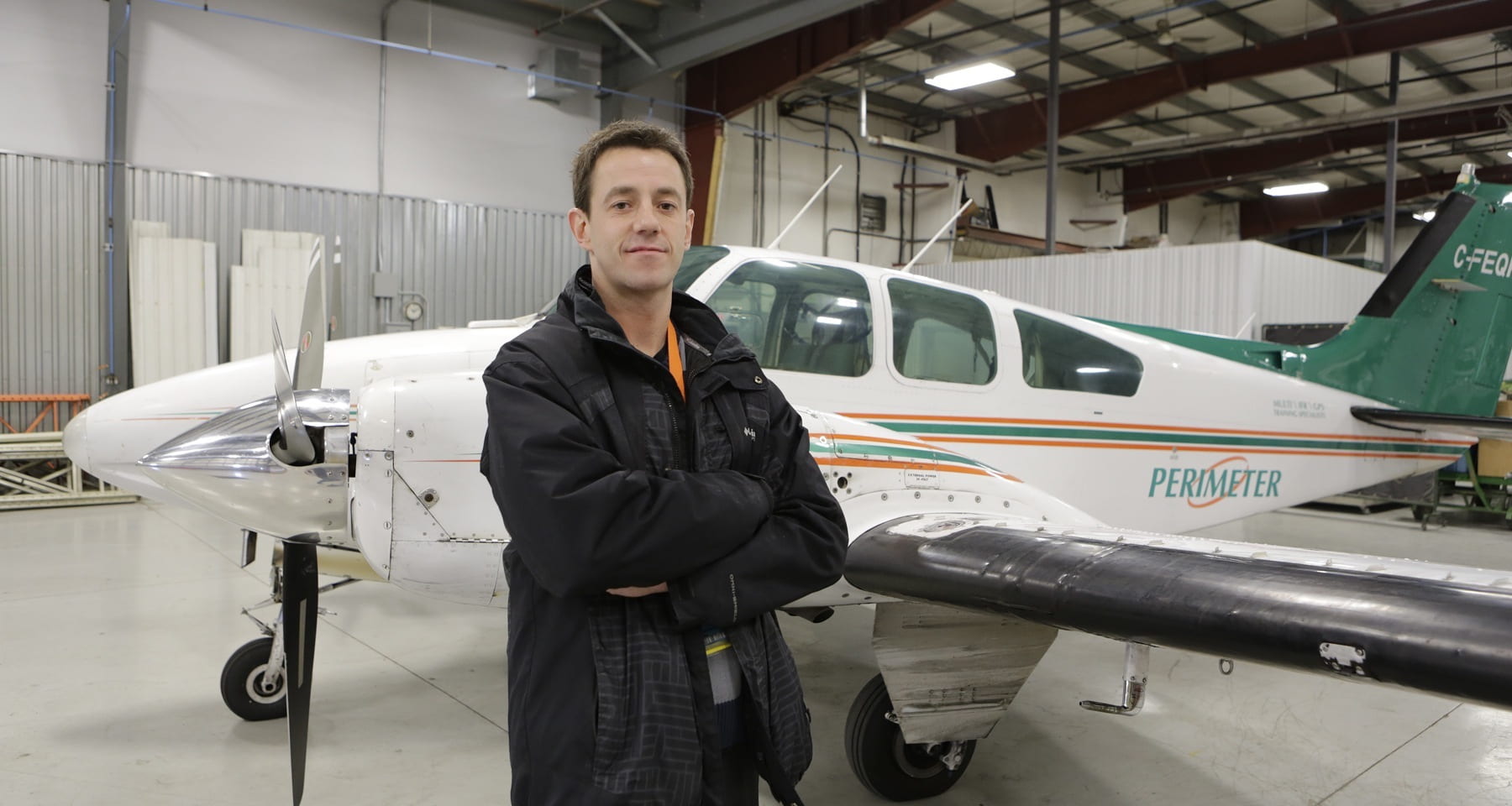RRC alum reaches new heights in Technical Communication
Ben Davies was sorting rocks.
Earlier that day, at the gravel hauling company where Davies (Technical Communication, 2005) worked as a dispatcher, his boss had dumped a box of stones on his desk. Normally, gravel samples were sent to a lab for analysis of size, consistency and quality, ensuring the crushing equipment was callibrated. But why pay for analysis when the man on the lowest rung of the company’s ladder could do the task between calling trucks?
It was while he lined up the stones, smallest to largest by miniscule increments, that Davies knew he’d hit rock bottom.
Raised in Transcona, the 31-year-old had never pictured himself at this crossroads. After finishing high school he had chased the Canadian boy’s dream of a career in hockey, moving to B.C. to begin his climb to NHL ice. But competition was intense. When he returned to Manitoba to regroup, he found his decision to leave the province had burned some bridges in the tight knit community. Junior hockey, like every other organization, has its politics.
That’s how he came to be sorting rocks. Was that piece of gravel slightly bigger? Was this piece crushed too powerfully?
The following Monday he arrived at work with the course books for both Winnipeg universities and Red River College. He read them in one day.
A couple of possibilities attracted him. Business Administration was his grandfather’s strongly recommended choice. It didn’t take. Welding appealed to his problem solving nature.
But a program he’d never heard of before caught his eye. Technical Communication advertised itself as the chance to clarify the complex, to sort a jumble of words into concise, flowing sense. A natural writer when he was in high school, Davies had been frustrated reading through textbooks.
“I asked myself, ‘Why do I need a dictionary to understand this?’” he says. Offered a chance to save other readers from the same experience, Davies signed up for the program.
“First term obviously took,” he says. “My GPA was above 4.0, which was some nice positive reinforcement. But the coursework ramped up in difficulty and by the end 20 students were whittled down to six or seven. It was challenging, both the severity and the amount of work, but that was a good preparation for the real world.”
The small class size – more like going to a meeting than a lecture, Davies says – also offered him the chance to hone the underappreciated but central skills of technical communication: being a people person.
“It’s counterintuitive, given the trend of introversion in technical communication, but you have to be a good people person to get information. The majority of my time is spent talking with people to understand new things. I’ve seen good tech writers fail because they have an inability to talk to people.”
Davies first job came through a connection he made at RRC; a woman who attended one of his presentations contacted him about a job opening, closing with “submit your resume already.”
Not long after graduation and only a few years after spending an afternoon sorting rocks, Davies found himself working at medical equipment developer IMRIS, writing manuals for cutting edge equipment and traveling the continent to help install the next generation of magnetic resonance scanners that supply surgeons with mid-surgery, up-to-the-second patient scans.
“I had a lot of satisfaction working at that company,” Davies says. “Each day going into work, you were working with devices that literally save lives.”
Davies eventually swapped surgical equipment for flight, joining Perimeter Aviation. The move is an example of how varied technical writing can be. At heart, Davies says, technical writing is about going to work and learning new things every day, then sharing your discoveries with the world. The move also has paid off in a promotion where Davies will be teaching employees how to update their policies and procedures, as well as developing document and content management systems.
“I spent eight to nine years in the trenches writing raw materials, but now I get to write processes themselves – how other people approach doing their jobs as opposed to just doing the job… It’s the chance to tear down silo walls, to pull over 500 employees onto the same page.”
Profile by Matt TenBruggencate (Creative Communications, 2013)

